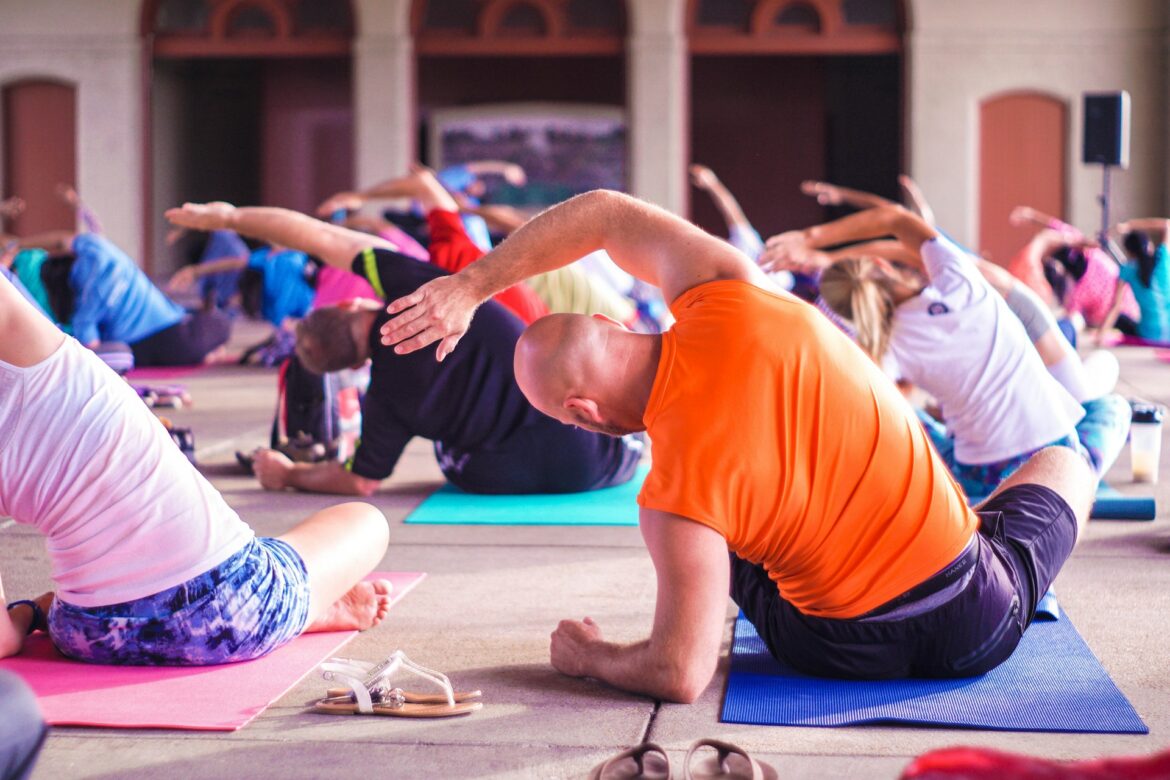Getting older doesn’t mean you have to slow down or accept a decline in your health and fitness. In fact, staying active and maintaining a healthy lifestyle becomes even more crucial as the years go by. Here’s a straightforward guide to help you stay fit and healthy as you age.

Embrace Regular Exercise
Regular exercise is the cornerstone of staying fit at any age, but it’s particularly important as you get older. It helps maintain muscle mass, supports joint health, improves cardiovascular fitness, and boosts mental health. Here are a few exercise tips for different fitness levels:
- Start Slow and Steady: If you’re new to exercise or it’s been a while, start with low-impact activities like walking, swimming, or cycling. Aim for at least 150 minutes of moderate aerobic activity each week, as recommended by health experts.
- Strength Training: Incorporating strength training exercises two to three times a week helps maintain muscle mass, which naturally declines with age. Simple exercises like bodyweight squats, resistance band workouts, or light weightlifting can be highly effective.
- Flexibility and Balance: As you age, your flexibility and balance can decrease, leading to a higher risk of falls. Incorporate stretching, yoga, or tai chi into your routine to improve flexibility and balance.
- Listen to Your Body: It’s essential to pay attention to how your body feels during and after exercise. If you experience pain or discomfort, adjust your routine accordingly. Consulting a healthcare professional or a fitness trainer can help tailor an exercise plan that suits your needs.
Eat a Balanced Diet
What you eat plays a significant role in how you age. A balanced diet provides the nutrients your body needs to function optimally. Here are some key dietary tips:
- Focus on Nutrient-Dense Foods: As you age, your body requires fewer calories but more nutrients. Focus on foods rich in vitamins, minerals, and antioxidants. Include plenty of fruits, vegetables, whole grains, lean proteins, and healthy fats.
- Stay Hydrated: Dehydration is a common issue among older adults. Make sure you drink plenty of water throughout the day. If you find plain water boring, try herbal teas or water infused with fruits.
- Limit Processed Foods: Processed foods often contain high levels of sugar, salt, and unhealthy fats. These can contribute to various health issues, including heart disease and diabetes. Aim to cook more meals at home using fresh ingredients.
- Mind Your Portions: As metabolism slows down with age, it’s important to be mindful of portion sizes to avoid overeating. Eating smaller, more frequent meals can help manage hunger and keep energy levels stable.
Prioritize Mental Health
Mental well-being is just as important as physical health. Here are a few strategies to keep your mind sharp and your spirits high:
- Stay Socially Connected: Maintaining social connections can improve your mood and mental health. Stay in touch with family and friends, join clubs or groups, and participate in community activities.
- Challenge Your Brain: Engage in activities that challenge your brain, such as puzzles, reading, or learning a new skill. Continuous learning and mental challenges can help keep your mind sharp.
- Practice Mindfulness and Relaxation: Techniques like meditation, deep breathing, and mindfulness can reduce stress and improve mental clarity. Even spending a few minutes each day in quiet reflection can make a significant difference.
Get Regular Check-Ups
Regular medical check-ups are essential for catching potential health issues early and managing existing conditions effectively. Here are some tips:
- Stay Up to Date with Screenings: Ensure you’re up to date with recommended health screenings such as blood pressure checks, cholesterol tests, and cancer screenings. Early detection is crucial for effective treatment.
- Monitor Chronic Conditions: If you have a chronic condition like diabetes or hypertension, work closely with your healthcare provider to manage it effectively. Adhering to prescribed medications and making lifestyle changes can significantly impact your quality of life.
- Vaccinations: Keep up with vaccinations, including the flu shot and other vaccines recommended for older adults, to protect against common illnesses.
Maintain a Positive Outlook
Finally, maintaining a positive attitude can have a profound impact on your overall well-being. Embrace aging as a new chapter full of opportunities. Surround yourself with positive influences, set new goals, and celebrate your achievements.
Staying fit and healthy as you get older is about embracing a lifestyle that supports your physical and mental well-being. Regular exercise, a balanced diet, mental stimulation, and regular medical check-ups are key components. With these strategies, you can age gracefully, maintaining your vitality and enjoying life to the fullest.


